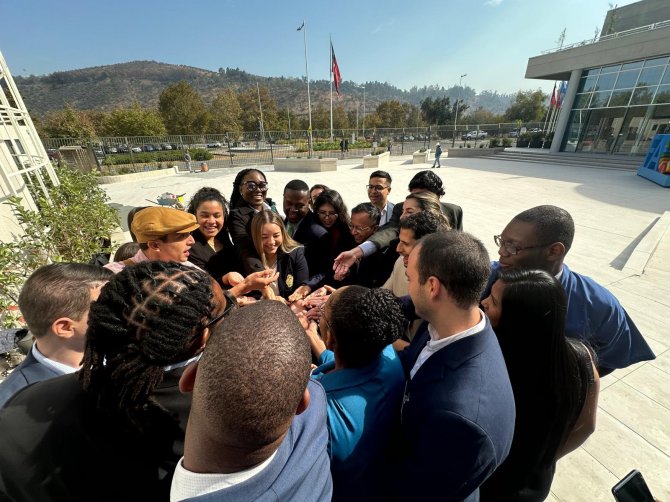
News
Empowering future food systems leaders: UN initiative equips youth for change
In a world where the urgency of transforming food systems has reached a critical height, the question looms large: Who will lead this change? In early 2024, the UN Food Systems Coordination Hub launched the Food Systems Youth Leadership Programme in partnership with FAO Regional Offices.
Supported by the German Federal Ministry for Economic Cooperation and Development (BMZ), Wageningen University & Research was pleased to provide expertise during the five-day workshop focusing on systems thinking, foresight for food systems, multi-stakeholder collaboration, and overall co-design and facilitation. This collaboration isn't just about knowledge transfer; it is about fostering the next generation of food systems leaders.
The programme connects promising early-career food systems innovators, practitioners, scientists, and activists from low-and middle-income countries. Through a competitive process, around 80 participants were selected from almost 3000 applicants.
Organized in three regions (Africa, Asia and the Pacific, and Latin American and the Caribbean), participants joined the workshop to strengthen their leadership skills, learn about the role of science and innovation in changing food systems, and explore ways to influence policy effectively. Ensuring that food systems deliver better outcomes for nutrition, livelihoods, and for our environment, has never been more urgent. The Food Systems Youth Leadership Programme enhances the ability of participants to drive systems change in their countries in line with the UN Food Systems Summit +2 Call to Action.

"Since the UN Food Systems Summit, there have been calls to make the abstract discussions about food systems more actionable, making tangible contributions to national processes of food systems transformation" says Herman Brouwer, Multi Stakeholder Engagement advisor. "But who is going to do this? Who are the leaders who can adopt a systems perspective and understand how to drive change in their food systems? Three years ago, we realized this is an unaddressed gap. Thus, with our partner Wasafiri Consulting, WCDI/WUR started to work with food systems leaders in Africa to further develop their leadership practices and offer a network for continued support - which is now the African Food Fellowship. This experience formed the basis for our collaboration with the UN Food Systems Coordination Hub".
While co-designing the three regional workshops, it became clear that a mix was needed between expert inspiration, interactive exchange formats, and personal reflection on the participants’ own leadership and work. Riti Herman Mostert, Multi Stakeholder Partnerships advisor, concludes "What we learned from the African Food Fellowship is that you need to meet Fellows where they are on their leadership journey, building on their own cases and experiences. At the same time a successful leadership programme needs to challenge professionals to step out of their comfort zones and try out new things". Likewise, the workshops for the UN Food Systems Coordination Hub needed to strike that balance. “It was inspiring to count on technical input from several members of the Hub's Scientific Advisory Committee and FAO regional experts to ensure that we tap into collective intelligence and multiple disciplines”, highlighted Nicole de Paula, the Hub´s global coordinator of the programme.
The workshops are the beginning of a 2-year initiative. A network will be created in support of these young leaders to spearhead change initiatives in their countries, in coordination with the National Convenors for the implementation of national pathways for food systems transformation. "This comprehensive curriculum was truly designed for food systems leaders" says participant Nantaporn Thirapongphaiboon from Thailand. "From mastering systems thinking to fostering multistakeholder collaboration and exploring the intersections of science, innovation and policy, each session was enriching and insightful", Jody Frank Brown from South Africa adds: "We have been able to connect with like-minded individuals, focusing on understanding the complexity of food systems and how we can grow our communities through social movements and science." Hear more from participants in Africa and Asia and the Pacific.
Investing in youth leadership is pivotal for catalyzing transformative change in food systems. By nurturing their potential, we cultivate a generation capable of driving meaningful progress towards a more equitable and nourished world. “Food systems transformation is an evolutionary process and the youth provides the elements to ensure that the process will not only address the needs of the present but will design the ambition for the future”, concludes Stefanos Fotiou, Director of the UN Food Systems Coordination Hub.